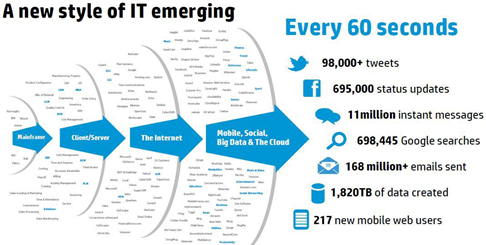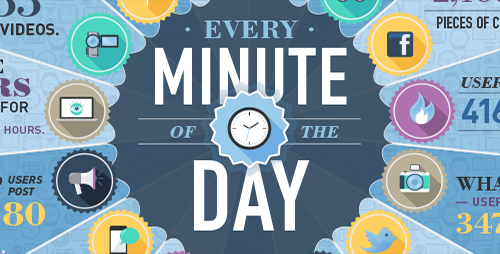eDiscovery Daily Blog
Information Governance vs. Search Doesn’t Have to Be a Battle After All: eDiscovery Trends

As will soon be reinforced in our upcoming thought leader interviews, one of the major focus areas at this year’s LegalTech® New York 2015 (LTNY) was a continued emphasis on Information Governance (IG). One of our perennial interviewees, Ralph Losey, has some thoughts about the battle in the legal tech world between IG and Search and reveals that it doesn’t have to be a battle after all.
In the post Information Governance v Search: The Battle Lines Are Redrawn on his excellent e-Discovery Team® blog, Ralph states that last year, he “came to believe that Information Governance’s preoccupation with classification, retention, and destruction of information was a futile pursuit”, termed IG activities as “inefficient and doomed to failure” and instead “embraced the googlesque approach of save and search”.
When Ralph expressed those viewpoints, he (not surprisingly) “created a controversy” and received quite a backlash, including “a distinguished leader of IG who bristled at my challenges” who “insisted that everyone in her very large corporation could easily comply with her lengthy retention schedules”. However, other members of the IG leadership “responded to the opposition with dialogue”, which enabled Ralph to learn that “IG, like Search, is not a monolith, that there are various factions and groups within IG”. Ultimately, Ralph determined that his “quarrel is, instead, with the old-liners, the Records Manager strata of IG who are obsessed with ESI classification and killing” (that Ralph categorizes as “caterpillars”). “To those” (a.k.a., the “butterflies”) “who have let go of that traditional role, and already been reborn as multimodal, AI-enhanced Information experts, I have no quarrel.”
Ralph has a lot more to say in the post, noting that ESI “grows and changes too fast for traditional governance” and concludes that “Information Governance is actually a sub-set of Search, not visa versa”. He also provides a nice graphic to illustrate just how much data is created in the digital universe every 60 seconds (see the top of this post). Remember a little over a year ago, when we noted that 3.4 sextillion bytes of information had been created in close to ten months in 2013? Well, according to EMC’s latest ticker, 6.1 sextillion bytes have been created since January 1, 2014. Yikes! We’ve provided a link to another infographic at the bottom of this post, courtesy of Domo.com, that provides even more info about the amount of data created every 60 seconds. Enjoy!
By the way, Ralph just posted his 500th blog post, which is a tremendous milestone. Congrats, Ralph! Up to now, Ralph noted that he has been posting weekly (since November 2006) and his posts have “morphed into several thousand word essays”. At eDiscoveryDaily, we probably write 2,500 to 4,000 words per week over five posts; Ralph writes that much (and often more) in his one post a week.
Now, Ralph has indicated that his e-Discovery Team® blog will be changing to a monthly format and that he will begin writing the blog “for advanced readers only”. I look forward to see how the future posts will look, but will miss my Monday morning routine of sitting down with a cup of coffee and reading Ralph’s latest post (at least for the weeks without a new post). Keeping a blog going day after day (or even week after week) is not easy. Kudos to Ralph for keeping it going for over eight years (so far).
So, what do you think? Do you think the old way of information governance is “inefficient and doomed to failure”? Please share any comments you might have or if you’d like to know more about a particular topic.
P.S. — Happy Birthday to my wonderful and beautiful wife, Paige Austin! We got engaged one year ago today. Best thing that’s ever happened to me! 🙂
Disclaimer: The views represented herein are exclusively the views of the author, and do not necessarily represent the views held by CloudNine. eDiscoveryDaily is made available by CloudNine solely for educational purposes to provide general information about general eDiscovery principles and not to provide specific legal advice applicable to any particular circumstance. eDiscoveryDaily should not be used as a substitute for competent legal advice from a lawyer you have retained and who has agreed to represent you.

